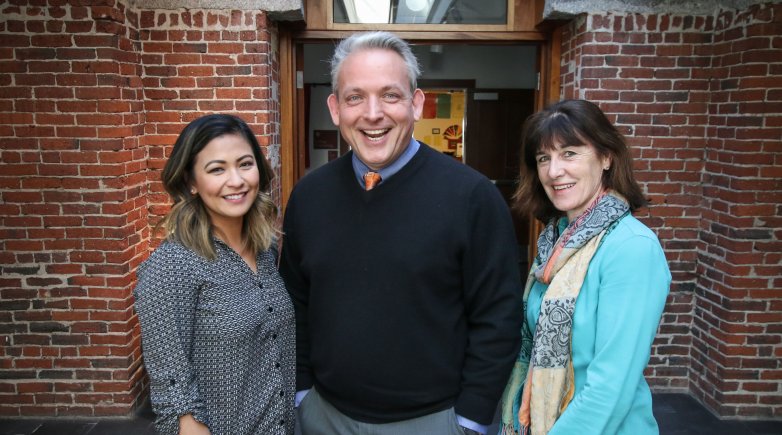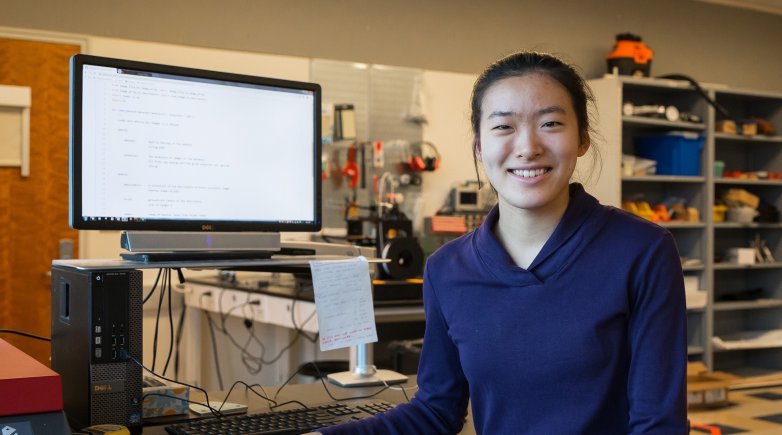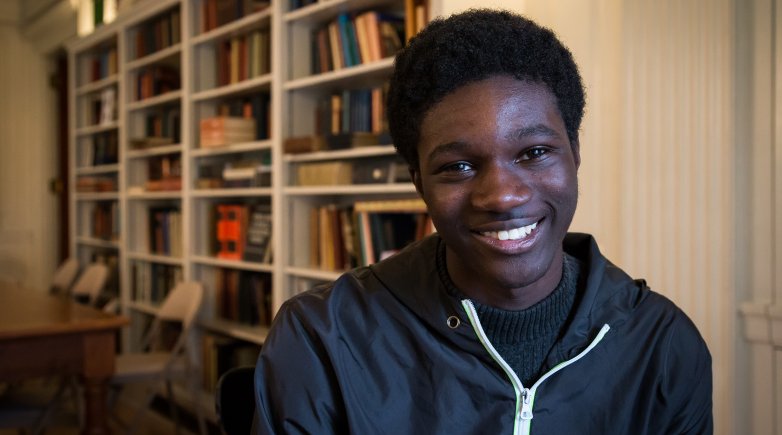Navigating college admissions
The key to picking the college that’s right for you is to focus on who you are, say Exeter’s veteran college counselors.
Sherry Hernandez, Cary Einhaus and Betsy Dolan.
The wide array of colleges and universities attended by Exeter graduates reflects the work that students do, guided by a team of veteran college counselors, to identify their true interests and pursue schools where they will flourish.
Two new members will join the College Counseling Office this fall, bringing Exeter’s team to nine full-time counselors. The added staff will give students more one-on-one counseling time and allow for expanded programming. We sat down with the dean of the department, Betsy Dolan, and counselors Sherry Hernandez and Cary Einhaus for a conversation about their work with students and families. Here are edited excerpts from that conversation.
Q: Tell me a little about Exeter’s college counseling program. How is it structured?
Betsy: Everything we do is intentional and developmentally appropriate. We build a foundation of support in the initial phase of the college process, and then we empower students to take initiative, so that when they go to college they are resourceful, resilient and self-actualized enough to make good choices.
Cary: Our ninth-grade messaging is about balance and finding your academic stride. It links with our health curriculum, which focuses on how to take care of yourself, how to be present, and not worry about what's going to happen three years from now.
Betsy: Right, we’re not focused on college at all with ninth-grade students. We ask them to take a learning-style inventory at the end of the year, so they reflect on who they are and how they learn. We have another inventory for 10th graders that helps them explore interests and be intentional about their choices. Then we start with a much more reflective period with the 11th graders.
Sherry: Our whole [early] approach, asking students to think about who they are and what they want, lays the groundwork for everything to come. By the time we start working with them one-on-one they’ve already been thinking about this is who I am instead of where they want to go to college. If you focus on who you are, what you want, the college list comes more organically.



